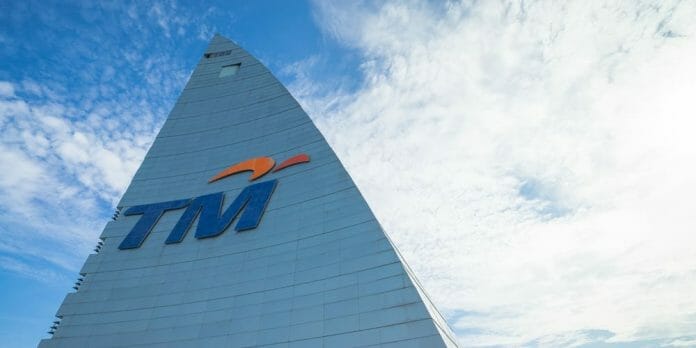Kenanga Research maintains its “OUTPERFORM” recommendation on Telekom Malaysia Bhd’s (TM) and retains a target price (TP) of RM6.57, which is derived from a 5.5x FY24F EV/EBITDA multiple.
Notably, there are no alterations to the TP related to Environmental, Social, and Governance (ESG) factors, as the research house has awarded it a 3-star rating.
Telekom Malaysia is poised to capitalise on several key factors, including the ongoing trends like digital transformation, the widespread adoption of Internet of Things (IoT), integration of Artificial Intelligence (AI), as well as reaping the rewards of JENDELA Phase 2 projects through deployment and revenue-generation prospects.
Additionally, it continues to make significant strides in its cost optimisation efforts, maintaining steady progress.
Alongside this, the research house is “NEUTRAL” on TM re-pricing of Unifi plans.
Despite the price cuts between 7% to 24%, the research house said TM average revenue per users **(**ARPUs) will be largely resilient as higher entry level ARPUs would offset erosion from cheaper business ARPUs and some down-trading of plans.
On the other hand, they are positive that uncertainty surrounding Unifi’s repricing has finally dissipated.
Meanwhile, on a somewhat less optimistic note, TM acknowledges the potential for customers to opt for lower-speed plans. This concern particularly applies to existing subscribers who were initially paying RM129 per month for the 100Mbps plan.
Under the current campaign, these customers are automatically upgraded to 300Mbps speeds.
However, looking ahead, as their contracts come to an end, there is a possibility that some of them may choose to downgrade and return to the 100Mbps plan. Consequently, this would lead to reduced monthly charges of RM99, representing a cost-saving of 23% for these subscribers.
For Unifi Business Fiber subscribers, the price cuts are slightly milder at between 7% to 20%.
Risks include higher-than-expected erosion in wholesale revenues from new RAO prices; pricing pressures at the retail segment arising from policy-led directives; and irrational competition in the retail fiber broadband space.









